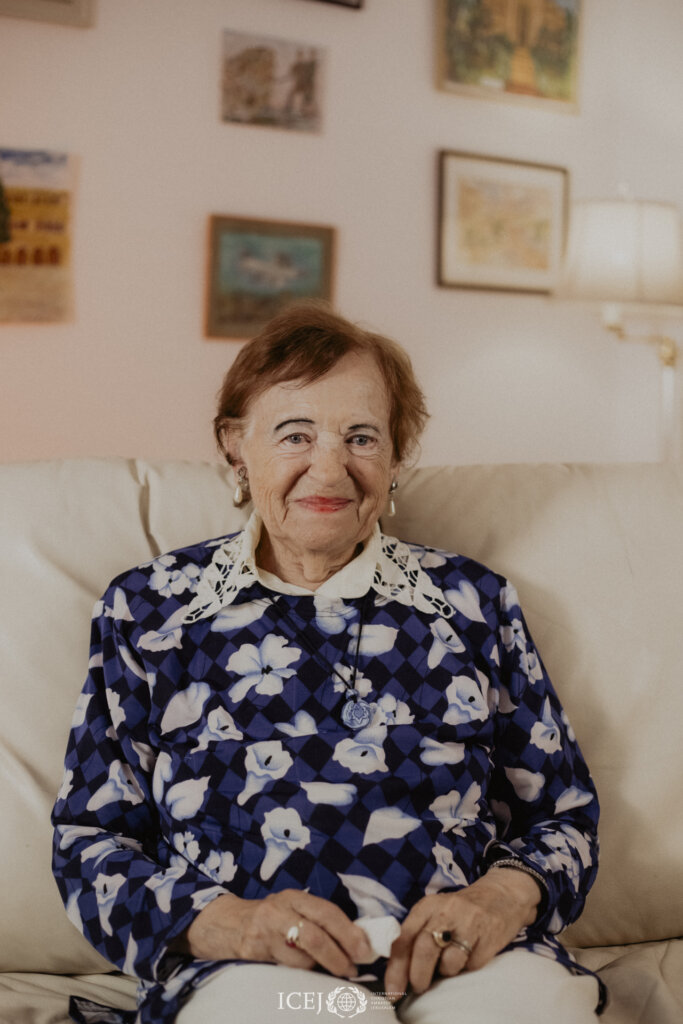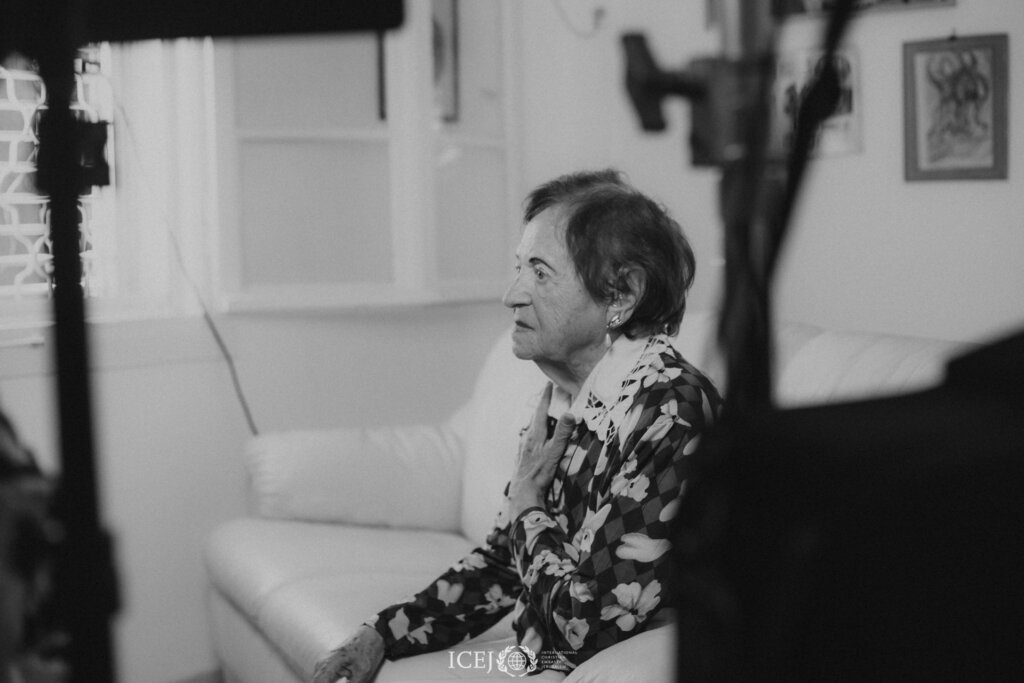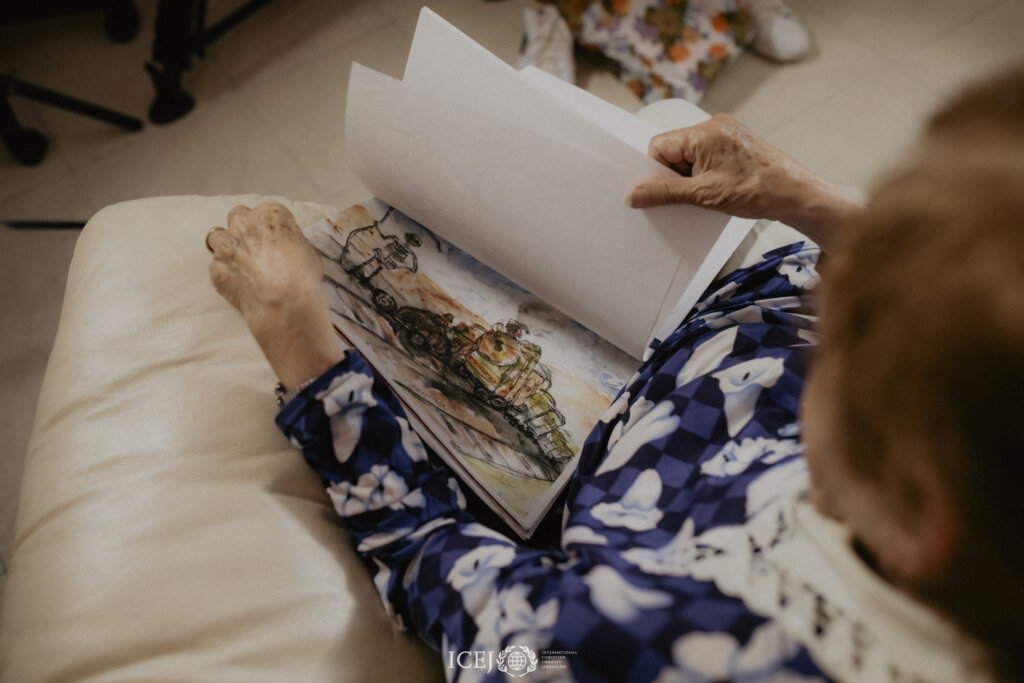
Childhood in the shadow of the Holocaust
Published on: 2.5.2024Manya’s story of survival
By: Jonathan A. Parsons
Romania’s autumn winds are blowing. You, together with hundreds of others, are marching in the cold and rain through the barren countryside to a destination unknown, pressed on by Romanian soldiers screaming and cursing at you. The hunger you feel from eating only a few stale scraps of bread for days is excruciating. Father tells you to keep moving, but your legs are tired from walking endlessly day after day, so you sit in defiance and exhaustion. With hardly a moment of rest, a soldier makes his way to you, looks straight into your eyes, and, raising his rifle, points it at you with intent to take your life.

This is where Manya Herman, at the age of eight, found herself in the midst of the Second World War.
Manya’s story begins in Briceni, a town in Romania now part of Moldova, where she was born in 1933. From a young age she loved to learn but was evicted from her school at the age of seven because she was Jewish. “How can the other kids keep studying and not me?” she asked herself.
In 1941, as the noose continued tightening around Jewish freedom, Romanian soldiers, who were collaborating with the Nazis, started rounding up the local Jews. One evening, in the Herman household, there were loud knocks heard on the door, and two Romanian soldiers barged in commanding them to get clothed and bring only what they could carry. Shocked and bewildered, they were taken from their home, which unbeknownst to them, they would not see for the next three years.
They were gathered together with hundreds of Jews from the nearby area into a stadium. From there on out they would walk into the ever-freezing rural landscape of Romania and Ukraine with no end in sight.
As they walked, local farmers would stand by watching the convoy of malnourished and ill-clad captives walking by. They would offer potato peels and pieces of bread in return for their belongings. Wherever there was a fruit tree along the road, Manya’s father would take whatever he could salvage and bring it to them to eat. Many times, the fruit was unripe and hard, other times it was rotting. Either way, they ate what they could get their hands on.

Two months into the march, as the originally large convoy was dwindling in numbers and the hunger grew worse, Manya’s mother started aching and groaning. The groans became screams. She was in labour. At that exact moment a local farmer happened to be passing by with a carriage and horse. He offered to take her, together with her husband and Manya, to his home to give birth, which the accompanying soldiers miraculously agreed to. As her mother was giving birth, Manya could overhear the commotion from a neighbouring room, where she heard screams, shouting and eventually, the cries of a newborn baby – small and malnourished. To this day she does not know if her sibling died or is still alive somewhere.
After three months of marching, the company found their destination in the town of Siminka, which lies on the banks of the Buh river in modern-day Ukraine. They settled in a large barn in the town. Everyone was relieved to have come to a place they could rest, but Manya, being hungry and thirsty, began to cry. Despite her parents’ efforts to calm her down, she continued until two men grabbed her and flung her into the snow outside. She was weak and could not free herself, and despite her struggle she felt the icy grip take over. With Manya fainting away on the brink of death, her father fought his way through the guards to hoist her up and take her back into the barn. That night, the family did not sleep, keeping Manya awake, fearing that if she did fall asleep, she would never wake up.

Life at the Siminka concentration camp was lonely and monotonous for Manya. Her father was enlisted into a farming project, and her mother was busy doing other things. She longed to learn and draw as she was still illiterate and was left to her own devices in the barn.
It was a little over two years after their initial arrival to Siminka when rumours of the Russians liberating nearby concentration camps were circulating around the camp. Many from the initial march had passed away, and the ones that remained had little hope for survival. One day the survivors were assembled in the barn. They were all seated in a semi-circle and one-by-one were called by name and taken outside. Soon after the person called exited the barn, the piercing sound of a gunshot was heard ringing through the barn. It was clear that it was the final attempt to kill as many of them as possible. Manya was hidden in the corner when she heard her father’s name being called out. It was as he stood up and made his way to the barn door that two soldiers burst into the barn. They were dressed in red, waved the Romanian guards out of the way, and shouted, “Jews, you are free!”
Manya was ten years old when she left the concentration camp. She had survived the Holocaust, the only remaining child in the group that had settled in Siminka. The horrors which transpired during this dark time are still hard to fathom, though many now-a-days deny that it ever happened. Let us share Manya’s story so that what happened to her will never again happen to others.

Today, Manya lives in Israel and has been a long-time resident of the Haifa Home for Holocaust survivors, a special retirement home operated by the International Christian Embassy Jerusalem. She has been doing artwork for many years, and at age 91, spends time daily using her artistic talents on her computer. Besides writing poems, she has also taught herself to draw on the computer and thus she produces drawings to accompany her poetry.
As we observe Israel’s national Holocaust Remembrance Day, known as Yom HaShoah, let us never forget the survivors of the Holocaust and do everything we can to support them. Please consider supporting the work of the ICEJ as we provide comfort and care for the precious residents of our special Home for Holocaust Survivors in Haifa.
Give today at: help.icej.org/survivors